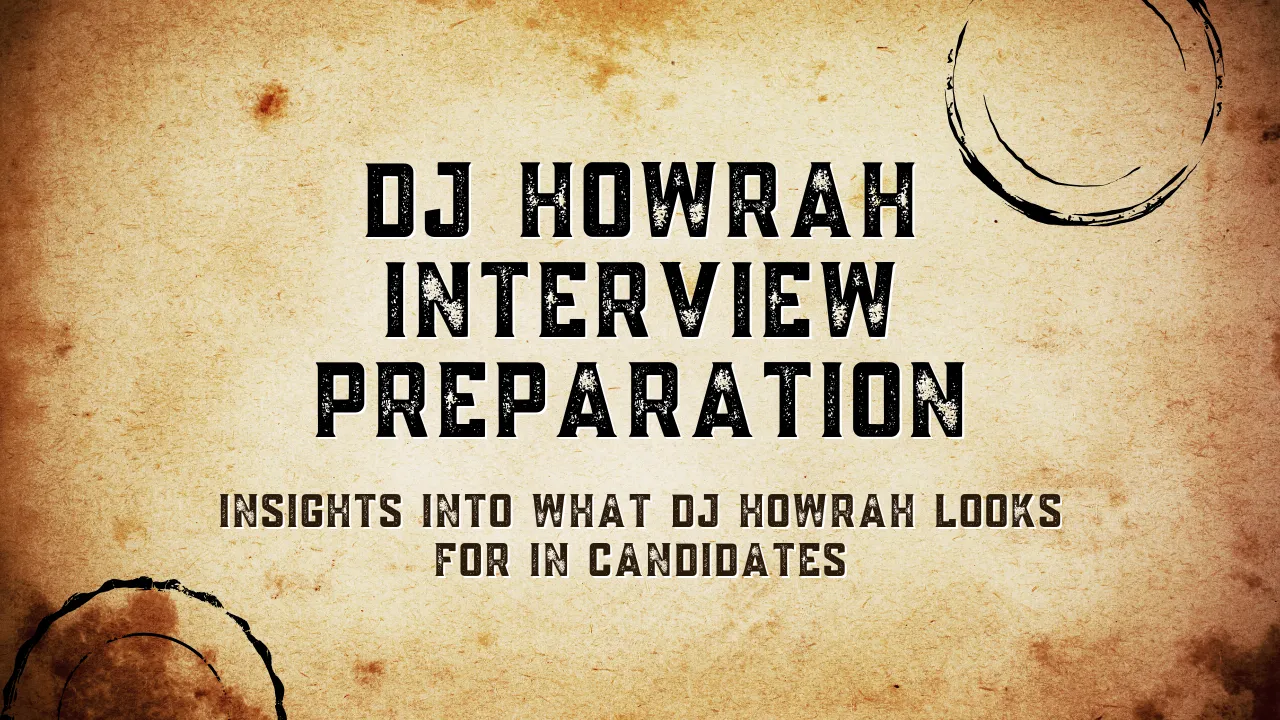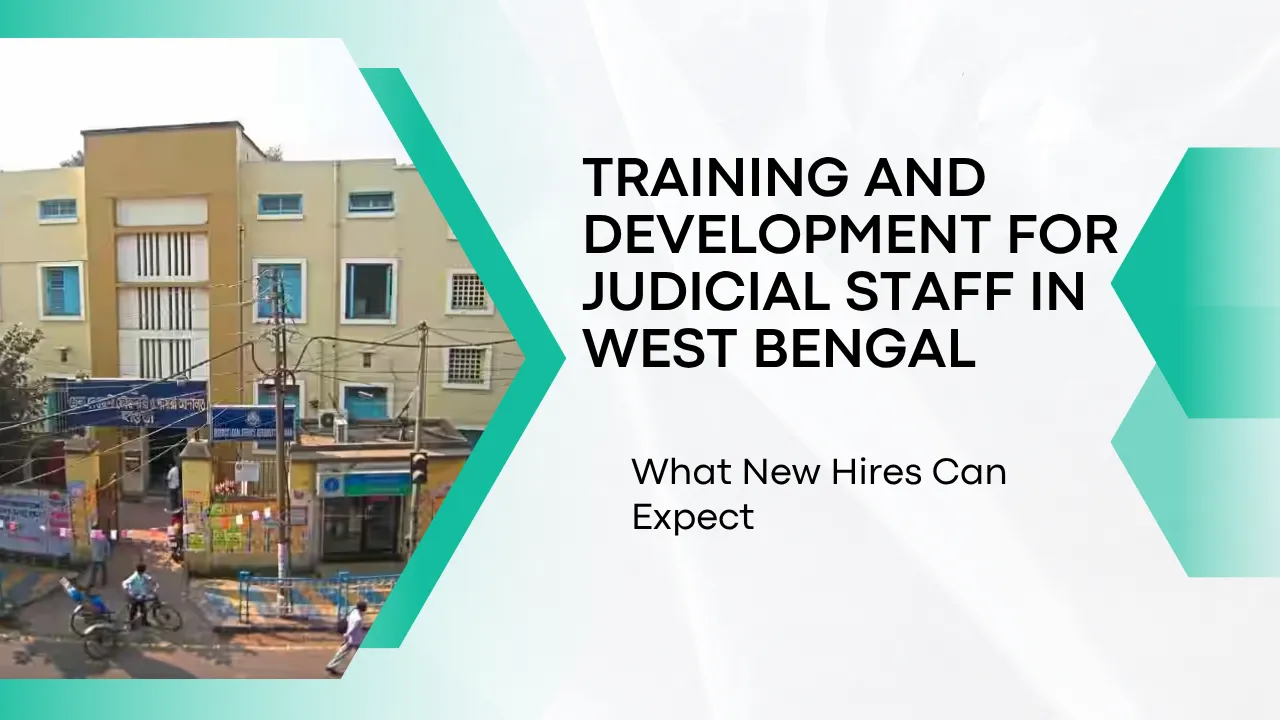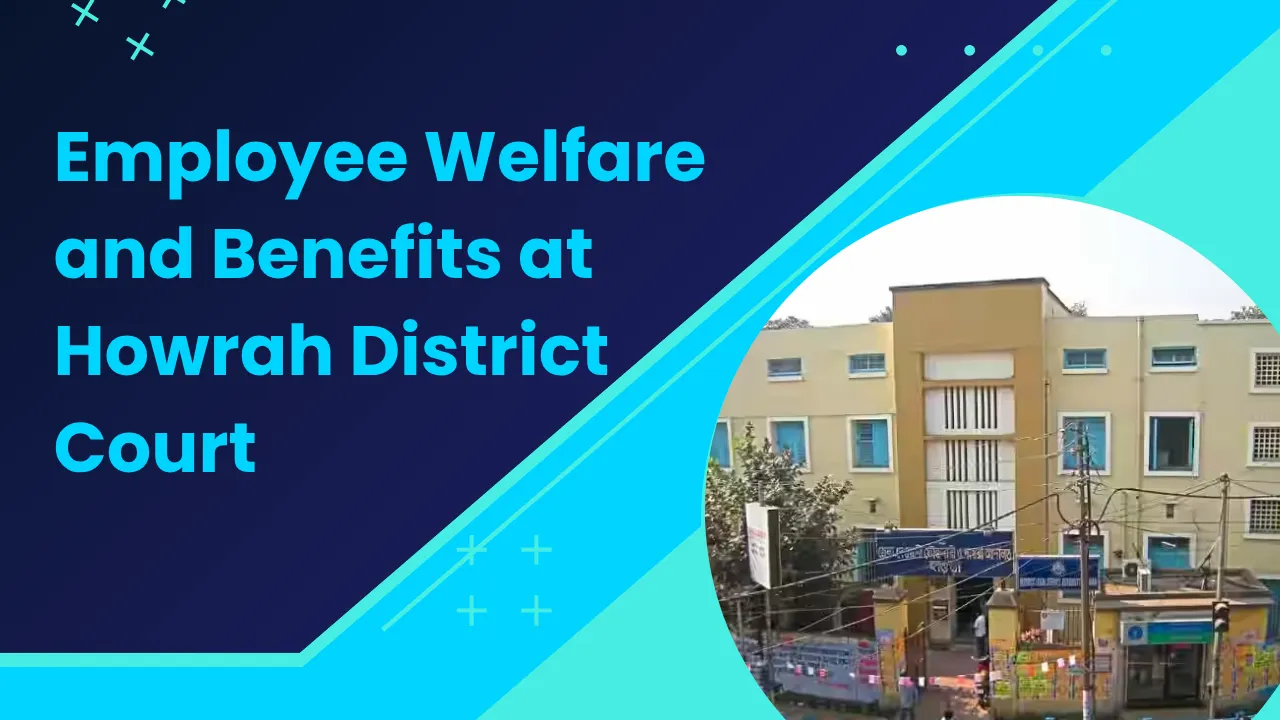Recruitment Transparency and Fairness: The District Judge’s Court in Howrah is set to conduct its 2025 recruitment drive, filling key roles such as Lower Division Clerk (LDC), Stenographer, and Process Server. In an era when public trust depends heavily on institutional integrity, the court’s efforts to implement transparent recruitment procedures are more critical than ever.
By adhering to clear communication, fair testing mechanisms, and merit-based evaluations, Howrah aims to set a benchmark for government hiring. This article explores how the DJ Howrah Recruitment 2025 ensures that every candidate has an equal opportunity to succeed—while safeguarding impartiality and boosting public confidence.
DJ Howrah Recruitment 2025: What You Need to Know
The DJ Howrah Recruitment 2025 drive is geared towards establishing a recruitment process that centers on objectivity, equal access, and accountability. Through well-defined vacancies, a structured application system, standardized assessments, and transparent result dissemination, the court demonstrates a firm commitment to fairness. This drive seeks not only to fill vacancies efficiently but also to reinforce public trust in judicial administration.
Overview Table
| Category | Key Highlights in 2025 Drive |
| Vacancy Announcement | Posted on official website and major newspapers, with clear job descriptions and dates |
| Application Process | Integrated online and offline options; transparent fee structure with category-based waivers |
| Written Test | Objective pattern covering general awareness, English, maths, logical reasoning |
| Skill Evaluation | Role-specific tests: typing and computer skills for LDC; shorthand & typing for stenographer |
| Evaluation Integrity | OMR/digital records preserved; biometric verification at exam venues |
| Interview Protocol | Structured interviews with standard questions and multi-member panels |
| Results Publication | Phase-wise result announcement; merit lists published with scores |
| Reservation and Fairness Rules | SC/ST/OBC/EWS/PwD quotas; age relaxations; certificate verification |
| Accessibility Measures | Scribe support, extended time, portal accessibility for PwD candidates |
| Anti-Cheating Measures | CCTV, strict invigilation, biometric and Aadhaar checks |
| Grievance Redressal | Defined procedures to address candidate concerns and appeals |
Public Notification and Comprehensive Advertisement
A transparent hiring process begins with its announcement. DJ Howrah’s 2025 drive will feature vacancy notifications on the official court website and leading regional newspapers. The notification is expected to provide a full outline—available positions, educational requirements, age limits, fees, exam patterns, and reservation categories—thereby ensuring candidates can thoroughly prepare and apply confidently.
Clear Eligibility Criteria and Application Process
Eligibility criteria for roles like Lower Division Clerk, Stenographer, and Process Server will be clearly defined. Requirements such as educational qualifications, age boundaries, and technical skills (e.g., typing speed, shorthand knowledge) will leave no room for ambiguity. The application process is designed to be inclusive, offering online and offline submission options. Clear documentation of application fees—and discounts or waivers for reserved categories—will make the process equitable and accessible.
Standardized Examination Process
A structured written exam is central to objective selection. Featuring multiple-choice or short-answer questions in general awareness, English, mathematics, and logical reasoning, the examination ensures that all applicants compete on a level playing field. Using OMR sheets or secure online systems further helps ensure uniform evaluation across candidates.
Role-Specific Skill Tests
Candidates applying for certain positions will undergo practical skill assessments. For instance, LDC applicants will need to demonstrate proficiency in computer use and typing, while stenographer hopefuls will be assessed for shorthand speed and clarity. These practical tests align with job responsibilities and help ensure that selected candidates are truly capable of performing the tasks required.
Secure Evaluation Protocols
To preserve fairness, the recruitment process will include biometric checks and Aadhaar-based identity verification. These measures aim to eliminate impersonation risks. Additionally, OMR answer sheets or digital assessments will be retained for audit purposes—minimizing any chances of tampering or misreporting.
Structured Interviews with Multi-Member Panels
When interviews are conducted, they will be structured and objective. Candidates will face the same set of questions scored according to defined rubrics. Selection panels will comprise multiple members to prevent bias and ensure balanced judgments. This setup encourages candidates to be evaluated on their suitability rather than subjective impressions.
Result Publication and Merit Lists
Results for each stage—written exam, skill test, interview—will be published transparently on the official court website. Separate lists highlighting shortlisted candidates, as well as final merit rankings with individual scores, will offer full visibility into how selections were made. Such transparency protects candidates from confusion or suspicion.
Reservation Policies and Fairness
To ensure inclusivity, recruitment follows official reservation protocols for SC, ST, OBC, EWS, and persons with disabilities (PwD). Age relaxations for reserved categories strictly follow government guidelines. Claims of reservation require valid verification certificates, ensuring only eligible candidates benefit and bolstering fairness.
Accessibility and Support for All Candidates
The recruitment process respects inclusivity by providing support such as scribes, extra time during abstracts, and portals accessible to visually impaired applicants. Exam centers are expected to follow guidelines for physical accessibility. Measures like these enable differently-abled candidates to compete fairly.
Preventing Malpractice and Ensuring Integrity
Exam offices are expected to implement rigorous anti-cheating protocols. CCTV coverage, strict invigilation, and biometric attendance help prevent misconduct. These best practices work jointly to reinforce trust in the integrity of the process.
Grievance Redressal Mechanism
DJ Howrah’s recruitment includes a formal mechanism to address concerns raised by applicants—whether related to exam anomalies, errors in results, or unfair evaluations. Defined deadlines for raising grievances, transparent response processes, and appeal avenues ensure candidates feel heard and treated justly.
Addressing Bias and Ensuring Equal Opportunity
Bias remains a persistent challenge in recruitment. DJ Howrah counters this through a systematic approach: objective testing, structured interviews, ultra-transparent screening, and diverse evaluation panels. Regular reviewer training and standardized rubrics help minimize unconscious bias. Transparency in merit lists and accessible audit trails allows candidates to track their progress objectively and discourage favoritism.
Nepotism and the Importance of Merit-based Selection
To prevent nepotism, DJ Howrah’s recruitment process centers on recorded metrics at every stage—from application submission to final hiring. Electronic logs, digital records, and biometric verification play a significant role in ensuring integrity. Involving external observers and committee audits can further neutralize potential internal bias.
Conclusion
The DJ Howrah Recruitment 2025 drive exemplifies a balanced blend of transparency, fairness, and inclusivity. Through clear notifications, robust testing, structured interviews, and transparent merit lists, the court is raising the bar for government hiring standards. Anti-malpractice measures and grievance systems further reinforce accountability and candidate confidence.
Aspiring candidates should monitor the official website for notifications, collect essential documents (like proof of identity, qualifications, and reservation certificates), and prepare diligently. By aligning with best recruitment practices, DJ Howrah ensures the selection of capable candidates and strengthens public trust in judicial administration.
Ready to step into a fair recruitment process? Bookmark howrah.dcourts.gov.in, start preparing, and share this guide with fellow aspirants. Let transparency and opportunity lead the way toward your public service career.
FAQs
1. When will the DJ Howrah 2025 notification be published?
The official announcement—containing application dates, vacancies, eligibility info—will appear on howrah.dcourts.gov.in ahead of the application window.
2. Is there an option to apply offline?
Yes, offline applications are likely to be accepted. The official notification will detail online and offline submission procedures.
3. How and when are results announced?
Results for each stage—written, skill, interview—will be posted in phases on the official site, along with final merit lists.
4. Will OMR sheets be available for review?
OMR or digital answer records are expected to be retained securely post-exam, helping enable transparency and potential reviews.
5. What accommodations are made for disabled candidates?
Recruitment will include scribe services, extended exam time, and accessible portals/exam centers—ensuring equal access for differently-abled applicants.












